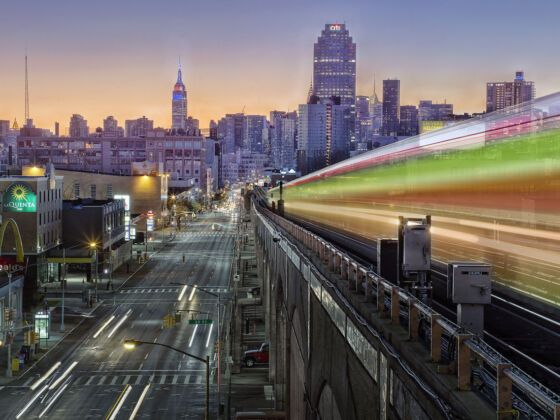THE ELEVATED track of New York City’s #7 train runs through some of the most ethnically diverse neighborhoods on earth; Jackson Heights, Corona, Flushing. The bustling, noisy streets are lined with storefront signs in dozens of languages and the aromas from countless cuisines waft from the street vendors’ food stalls.
Vibrant immigrant communities thrive here. In an area where over 50% of the residents are foreign-born and more than 170 languages are spoken, there is no shortage of inspirational stories from people in search of the American dream.
